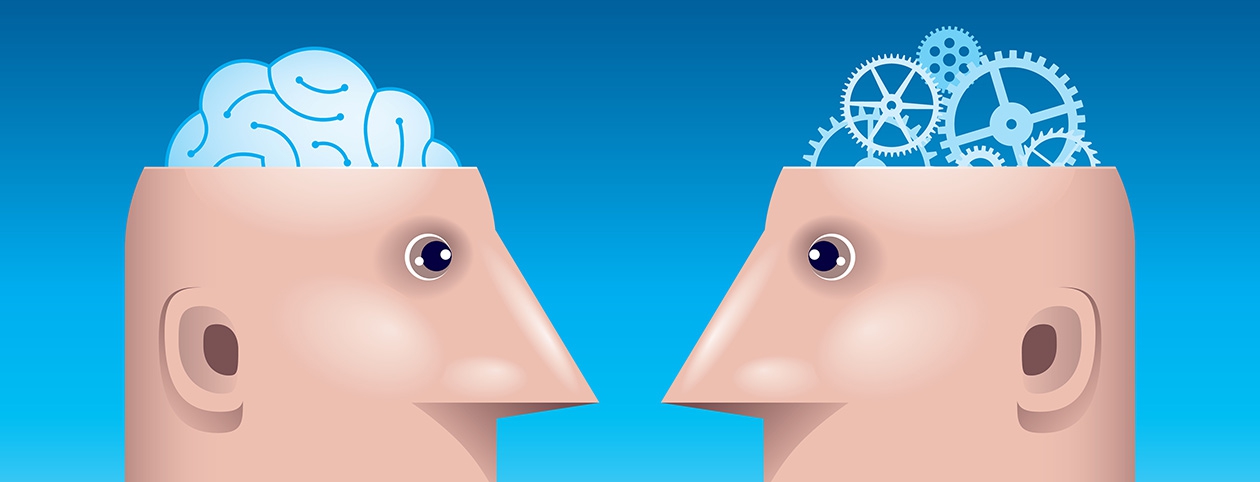The views expressed in our content reflect individual perspectives and do not represent the authoritative views of the Baha'i Faith.
The perennial, universal map of inner human growth doesn’t only occur in the teachings of religion.
In contemporary western psychological theory our foremost thinkers, researchers and therapists have uncovered strikingly similar, stage-specific descriptions of the path of human development. Alfred North Whitehead, Abraham Maslow, Rollo May, Carol Gilligan, Robert Kegan, Lawrence Kohlberg, Carl Jung, Erik Erikson, Jean Piaget, and Ken Wilber have all proposed ideas, concepts and theories that dovetail remarkably well with the overall idea of nested developmental levels in moral, psychological and spiritual growth. These sequential developmental theories work universally, regardless of your belief system, charting and explaining the mysteries of human moral and spiritual growth in all of us.
People who experience growth on this developmental ladder describe it as an opening of the heart and a widening of the scope of consciousness, gradually moving the seeker from love for self to love for others and then toward love for all.
Metaphorically, this dynamic, evolutionary process presents an ever-widening embrace of greater and greater realities. It proceeds from the unborn child hugging its physical self in the womb, then reaching out to the mother and father in infancy, then embracing family and friends and loved ones in childhood, then finally toward the most great embrace of all in a spiritually mature adulthood—a loving embrace of all humanity. Maslow described this process as an ascending “hierarchy of needs,” reflecting our growing human needs for ever-wider and more profound connections in each distinct stage of life.
All human beings who embark on a path of inner growth participate in this step-by-step process of becoming our true selves, says the psychologist Rollo May:
Every organism has one and only one central need in life, to fulfill its own potentialities. The acorn becomes an oak, the puppy becomes a dog and makes the fond and loyal relations with its human masters which befit the dog; and this is all that is required of the oak tree and the dog. But the human being’s task in fulfilling his nature is much more difficult, for he must do it in self-consciousness. That is, his development is never automatic but must be to some extent chosen and affirmed by himself. The basic step in achieving inward freedom is ’choosing one’s self.’ This strange-sounding phrase of Kierkegaard’s means to affirm one’s responsibility for one’s self and one’s existence. It is the attitude which is opposite to blind momentum or routine existence: it is an attitude of aliveness and decisiveness. – Man’s Search for Himself, pp. 93, 95.
Just as our bodies need food and water, our inner nature longs to nourish and fulfill its potential. Maslow based much of his hierarchy of needs on this simple premise:
The muscular person likes to use his muscles, indeed, has to use them in order to ’feel good’ and to achieve the subjective feeling of harmonious, successful, uninhibited functioning (spontaneity) which is so important an aspect of good growth and psychological health. So also for intelligence, for the uterus, the eyes, the capacity to love. Capacities clamor to be used, and cease their clamor only when they are well used. That is, capacities are also needs. Not only is it fun to use our capacities, but it is also necessary for growth. – Toward a Psychology of Being, p. 201.
Spiritual search, when it provides the impetus toward using your capacities in the service of inner growth and maturity, nourishes and stimulates the human spirit. When search answers the clamor of our capacities, then a path of spiritual discovery opens in front of us. But if we can’t summon the courage to walk the path, and we allow our routine existence to take over, our anxieties mount and we gradually become unfulfilled and empty. Refusing the call to adventure, we create our own swamp of unmet promise, a directionless bog of anxious fear. The educational philosopher Daniel Jordan wrote about this anxiety and its potential:
The only successful way to deal with anxiety is to treat that energy as a gift and find a concrete goal for it which will serve the more basic goal or purpose of developing capacities for loving and knowing. Determining what that goal should be in specific terms is perhaps the most universally creative act of man. It entails assuming a risk and stepping into the unknown, bearing the burden of doubt, yet always hopeful of discovering some new capacity… Being attracted to that unknown in ourselves is faith; being able to utilize the energy from anxiety by formulating a goal and taking steps toward it is courage. Thus faith, doubt, anxiety and courage are all basic aspects of the process of transformation — the release of potential. – Becoming Your True Self, World Order, Volume 3, No. 1, p. 50.
If capacities become needs, as Maslow declares; and attraction to the unknown inner self defines faith, as Jordan concludes, then finding and knowing ourselves becomes more than just some self-indulgent luxury, leisurely pursued by those with too much spare time–it represents an absolute necessity, even an imperative, the fundamental first requirement of every fully alive soul.
In these modern scientific views, it turns out that the growth maps of psychological maturation, moral development and spiritual search look remarkably alike–directing us from a focus on the self toward a gradual shedding of those concerns and recognition of something higher:
We must care for man’s two natures; for as the material man makes certain demands for food and raiment and if not looked after suffers, even so his spiritual reality suffers without care. This is why the divine messengers come to the rescue–to care for the reality, that man’s thoughts may unfold and his aims become realized, that he many inherit a new field of progress… – Abdu’l-Baha, Divine Philosophy, p. 96.

















Comments
Sign in or create an account
Continue with Googleor